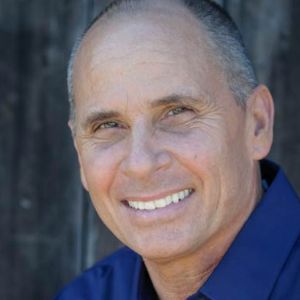






Reflections
Verified Center
This provider's information has been quality-checked by Recovery.com's Research Team for accuracy and completeness, including center verification through appropriate third-party organizations.
Treatment Focus
This center treats substance use disorders and co-occurring mental health conditions. Your treatment plan addresses each condition at once with personalized, compassionate care for comprehensive healing.
Primary Level of Care
Offering intensive care with 24/7 monitoring, residential treatment is typically 30 days and can cover multiple levels of care. Length can range from 14 to 90 days typically.
Treatment Focus
This center treats substance use disorders and co-occurring mental health conditions. Your treatment plan addresses each condition at once with personalized, compassionate care for comprehensive healing.
Primary Level of Care
Offering intensive care with 24/7 monitoring, residential treatment is typically 30 days and can cover multiple levels of care. Length can range from 14 to 90 days typically.
Provider's Policy
We work with most PPO insurances on an out of network basis, typically through your employer, to find you the best price for comprehensive addiction treatment. All information obtained is strictly confidential. We do not take Medicaid, Medi-Cal, or Medicare.
Reflections
Reflections
About Reflections
Reflections treats addiction and co-occurring mental health conditions using a whole-person, strengths-based approach to recovery. They welcome a maximum of 6 clients, providing individualized treatment plans led by experienced clinical staff with initial biopsychosocial assessments determining unique needs. Their levels of care include medically supervised detox, residential treatment, intensive outpatient, and a supportive alumni program. Reflections caters to executive clients by integrating work and outside responsibilities into their treatment schedule.
Intensive Dual-Diagnosis Recovery
Reflections prioritizes clinically excellent treatment to address the symptoms and causes of addiction. They address co-occurring conditions like anxiety, depression, PTSD, bipolar disorder, and unresolved grief. Each of the 6 clients in treatment receive a treatment team that includes:
•Clinical psychologist
•Licensed therapist
•Family therapist
•Relapse and continuing care counselor
•Nurse practitioner for detox
•Psychiatrist for psychiatric assessments when needed
Comprehensive Individual, Group, and Family Therapy
Reflections provides a minimum of 6 individual sessions each week with their psychologist. Clients attend daily group therapy sessions and psychoeducation groups on relapse prevention, anger management, and relationship skills. Family members can attend a monthly family program and join regular family/couples therapy sessions throughout treatment. Reflections additionally provides holistic therapies for a well-rounded treatment experience. These include meditation, art and music therapy, yoga, energy therapy, and equine therapy.
Luxurious Facilities and a Continuum of Care
Reflections has 3 facilities: one for detox, one for residential treatment, and one for outpatient services. Clients in their detox and residential facilities can enjoy private bedrooms, individual working stations, and a business executive track with technology access and time to work as needed. They additionally provide a sauna, pool, and on-site gym to aid in physical recovery. In their intensive outpatient program (IOP), clients attend treatment 3 times weekly. There, they receive group sessions and 2 individual sessions a week. Their alumni program keeps clients connected to support through biweekly alumni meetings, quarterly meetings, and events.
Highlights from the Center
Highlights
These highlights are provided by and paid for by the center.
Insurance Accepted
Private Rooms Only
Tech Friendly
Executive Treatment
Center Overview
Treatment Focus
This center treats substance use disorders and co-occurring mental health conditions. Your treatment plan addresses each condition at once with personalized, compassionate care for comprehensive healing.
Joint Commission Accredited
The Joint Commission accreditation is a voluntary, objective process that evaluates and accredits healthcare organizations (like treatment centers) based on performance standards designed to improve quality and safety for patients. To be accredited means the treatment center has been found to meet the Commission's standards for quality and safety in patient care.
Insurance Accepted
Cash Pay Rates
Estimated Cash Pay Rate
Center pricing can vary based on program and length of stay. Contact the center for more information. Recovery.com strives for price transparency so you can make an informed decision.
Luxury rehab centers offer a unique blend of luxurious amenities and high-quality treatment. From private suites to gourmet dining, personal trainers to spa treatments, these facilities provide a high level of comfort and discretion.

Meet Your Care Team

Louise McCallion
Founder/CEO

Olejan Hafstad
Executive Director

Renee Helm
Operations Director

Dr. Tim Worden
Clinical Director, Residential
Ph.D.

Chad McCain
Primary Therapist
LMFT

David France
Marriage and Family Therapist
LMFT, SUDCC

Dr. Laureen Turner Worden
PHP/IOP Clinical Director
Ph.D.

Dr. Deborah Bowman
Detox Specialist
DNP, PhD, NP, CARN-AP, FIAAN

John Foord
Primary Therapist
A-MFT

Erica Smith
Program Director, Detox
SUDCC II

Ronald Patrick
Certified Drug and Alcohol Counselor
M-RAS, SUDCC II

Julee Mutch
Detox Relapse Prevention Specialist
CADAC-2, ICADC

Tara Kesecker
Nursing Director
LVN

Gregory Holmes
Director of Compliance




Levels of Care







Your Care Options
Specializations
Alcohol
Using alcohol as a coping mechanism, or drinking excessively throughout the week, signals an alcohol use disorder.
Co-Occurring Disorders
A person with multiple mental health diagnoses, such as addiction and depression, has co-occurring disorders also called dual diagnosis.
Drug Addiction
Drug addiction is the excessive and repetitive use of substances, despite harmful consequences to a person's life, health, and relationships.
Executives
Executive treatment programs typically directly support the needs of people who manage businesses and may provide flexible schedules and office space to allow work during treatment.
Post Traumatic Stress Disorder
PTSD is a long-term mental health issue caused by a disturbing event or events. Symptoms include anxiety, dissociation, flashbacks, and intrusive thoughts.
Trauma
Some traumatic events are so disturbing that they cause long-term mental health problems. Those ongoing issues can also be referred to as "trauma."
Neurofeedback
During therapy, patients observe their own brain waves as interpreted by an EEG. This empowers them to understand and regulate emotional responses.
Who We Treat
Executives
Executive treatment programs typically directly support the needs of people who manage businesses and may provide flexible schedules and office space to allow work during treatment.
LGBTQ+
Addiction and mental illnesses in the LGBTQ+ community must be treated with an affirming, safe, and relevant approach, which many centers provide.
Midlife Adults
For adults ages 40+, treatment shifts to focus on the unique challenges, blocks, and risk factors of their age group, and unites peers in a similar community.
Professionals
Busy, high-ranking professionals get the personalized treatment they need with greater accommodations for work, privacy, and outside communication.
Veterans
Patients who completed active military duty receive specialized treatment focused on trauma, grief, loss, and finding a new work-life balance.
Approaches
Evidence-Based
A combination of scientifically rooted therapies and treatments make up evidence-based care, defined by their measured and proven results.
Family Involvement
Providers involve family in the treatment of their loved one through family therapy, visits, or both–because addiction is a family disease.
Holistic
A non-medicinal, wellness-focused approach that aims to align the mind, body, and spirit for deep and lasting healing.
Individual Treatment
Individual care meets the needs of each patient, using personalized treatment to provide them the most relevant care and greatest chance of success.
Non 12 Step
Non-12-Step philosophies veer from the spiritual focus of the 12-Steps and instead treat the disease of addiction with holistic or secular modalities.
Personalized Treatment
The specific needs, histories, and conditions of individual patients receive personalized, highly relevant care throughout their recovery journey.
Therapies
1-on-1 Counseling
Patient and therapist meet 1-on-1 to work through difficult emotions and behavioral challenges in a personal, private setting.
Meditation & Mindfulness
A practiced state of mind that brings patients to the present. It allows them to become fully aware of themselves, their feelings, and the present moment.
Mindfulness Therapy
This ancient practice can be mental, emotional, and even spiritual. In meditation, you focus your attention on the present moment without judgement.
Adventure Therapy
This experiential approach uses the physical and emotional challenges of outdoor activities as tools for personal growth.
Animal Therapy
Animals can inspire trust and self-worth. In this experiential therapy, guided interactions are used to improve social skills and emotion regulation.
Art Therapy
Visual art invites patients to examine the emotions within their work, focusing on the process of creativity and its gentle therapeutic power.
Couples Counseling
Partners work to improve their communication patterns, using advice from their therapist to better their relationship and make healthy changes.
Conditions We Treat
Pornography Addiction
A person with a porn addiction is emotionally dependent on pornography to the point that it interferes with their daily life and relationships.
Grief and Loss
Grief is a natural reaction to loss, but severe grief can interfere with your ability to function. You can get treatment for this condition.
Personality Disorders
Personality disorders destabilize the way a person thinks, feels, and behaves. If untreated, they can undermine relationships and lead to severe distress.
ADHD, ADD
ADHD is a common mental health condition caused by dopamine imbalance. Common symptoms include inattention, hyperactivitiy, and impulsivity.
Anger
Although anger itself isn't a disorder, it can get out of hand. If this feeling interferes with your relationships and daily functioning, treatment can help.
Anxiety
Anxiety is a common mental health condition that can include excessive worry, panic attacks, physical tension, and increased blood pressure.
Bipolar
This mental health condition is characterized by extreme mood swings between depression, mania, and remission.
Codependency
Codependency is a pattern of emotional dependence and controlling behavior. It's most common among people with addicted loved ones.
Substances We Treat
Alcohol
Using alcohol as a coping mechanism, or drinking excessively throughout the week, signals an alcohol use disorder.
Benzodiazepines
Benzodiazepines are prescribed to treat anxiety and sleep issues. They are highly habit forming, and their abuse can cause mood changes and poor judgement.
Chronic Relapse
Consistent relapse occurs repeatedly, after partial recovery from addiction. This condition requires long-term treatment.
Co-Occurring Disorders
A person with multiple mental health diagnoses, such as addiction and depression, has co-occurring disorders also called dual diagnosis.
Cocaine
Cocaine is a stimulant with euphoric effects. Agitation, muscle ticks, psychosis, and heart issues are common symptoms of cocaine abuse.
Drug Addiction
Drug addiction is the excessive and repetitive use of substances, despite harmful consequences to a person's life, health, and relationships.
Ecstasy
Ecstasy is a stimulant that causes intense euphoria and heightened awareness. Abuse of this drug can trigger depression, insomnia, and memory problems.
Heroin
Heroin is a highly addictive and illegal opioid. It can cause insomnia, collapsed veins, heart issues, and additional mental health issues.
Languages
Aftercare
Care Designed for Your Needs
Personal Amenities
Amenities
Special Considerations
Executive Program
Addiction and mental health treatment for executives typically involves high discretion, greater technology access, and more private, 1-on-1 care.
Flexible technology policies
Centers with flexible technology policies allow professionals to stay in touch with work and give patients a greater sense of connection and normalcy.
Activities
Yoga
Yoga is both a physical and spiritual practice. It includes a flow of movement, breathing techniques, and meditation.
Off-Site Activities
Off-Site Amenities
What people are saying
Treatment
4.8
Accommodations
4.7
Food & Nutrition
4.9
Value
4.9
Pros
- Friendly & Competent Staff (6)
- Beautiful Location (4)
- Very Informative (3)
- Family Program (3)
Cons
- Poor Cell Service (2)
teresa
Reviewed 05/30/24
Review from Rehabs.com
Kate
Reviewed 06/29/21
Review from Rehabs.com
Randy
Treatment in 2023 • (30 days) • Reviewed 12/17/23
Former Client
•Retired
W
Treatment in 2023 • (30 days) • Reviewed 11/10/23
Former Client
•Engineer
Juliana
Reviewed 06/12/21
Review from Rehabs.com






